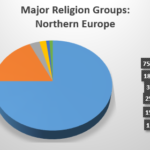Dune and Religion: Critique, Complexity, and Power in Frank Herbert's Universe

Introduction: Religion’s Central Role in Dune
Frank Herbert’s
Dune
universe is renowned for its intricate social structures, political intrigue, and philosophical depth. Among its most debated themes is the portrayal of religion: does Dune take an anti-religion stance, or does it offer a more nuanced critique? This article explores the multifaceted depiction of faith and religious institutions within Dune, providing actionable guidance for readers seeking to understand or analyze religious commentary in science fiction literature.
The Landscape of Religion in Dune
Religion is woven into the very fabric of the Dune universe. The powerful Bene Gesserit order, the Fremen’s messianic prophecies, and the pervasive influence of religious texts all serve to define characters’ motivations and the trajectory of the plot. The Bene Gesserit, for instance, use religious myths as tools for social engineering, strategically planting legends to manipulate populations and further their own objectives [4] . The Fremen, oppressed desert dwellers, anchor their resistance in the hope of a savior who will transform their world, a belief system that Paul Atreides ultimately exploits to rise to power [4] .
Herbert’s world-building is deeply influenced by Abrahamic religions, especially Christianity and Islam, though these belief systems are presented as corruptions or evolutions of their original forms [3] . This approach underscores the adaptability and persistence of faith, but also its susceptibility to manipulation and distortion.
Is Dune Anti-Religion? A Nuanced Perspective
Despite the centrality of religion in Dune, Herbert does not provide a simple answer to whether religion is ultimately beneficial or harmful. Instead, he treats spiritual belief as a double-edged sword: it can inspire people, mobilize societies, and offer comfort, but it can also be exploited for political gain, fuel fanaticism, and justify violence [1] . The manipulation of the Fremen by Paul and the Bene Gesserit serves as a case study in the use-and abuse-of faith as a tool of control [4] .
Herbert remains ambiguous about his stance on religion. He neither champions spirituality as a universal good nor condemns it outright. Instead, his narrative suggests that religion’s power is inseparable from the human condition-it is here to stay, shaping societies for better or worse [1] .
Religion and Political Power: Lessons from Dune Messiah
The sequel,
Dune Messiah
, delves deeper into the dangers of combining religion with government. Paul Atreides, now Emperor, finds himself at the center of a fanatical religious jihad that claims billions of lives. The series highlights how religious fervor, when harnessed for political ends, can lead to corruption and mass violence
[2]
. Ultimately, Herbert warns that governments function best when humans trust in humanity above religious authority, suggesting a cautionary approach toward faith-based governance
[2]
.
For readers and scholars, this provides a framework for analyzing the intersection of religion and politics in speculative fiction. The narrative encourages a critical eye toward the ways in which faith is weaponized by those in power.
Practical Application: Interpreting Religious Themes in Dune
To critically engage with the religious themes in Dune, consider the following steps:
- Examine Character Motivations: Analyze how key figures use religious language, rituals, and myths to achieve personal or political goals. For instance, Lady Jessica’s use of the Bene Gesserit’s mantras, and Paul’s transformation into a messiah figure, are both strategic and deeply personal [1] .
- Assess the Role of Institutions: Evaluate the Bene Gesserit, Fremen, and other groups as institutions that blend spiritual belief with social engineering. Ask how these organizations shape collective behavior and individual choices [4] .
- Identify Manipulation and Exploitation: Consider how myths are deliberately spread and exploited. The Bene Gesserit’s creation of prophecies for political ends is a central example [4] .
- Recognize Limits and Dangers: Reflect on the consequences of religious fanaticism, especially when faith becomes intertwined with violence, as seen in the Fremen jihad [2] .
- Contextualize Within Broader Debates: Situate Herbert’s work within wider discussions about the role of religion in society. Consider parallels to real-world history and contemporary events.
These steps provide a roadmap for interpreting not only Dune, but other works of speculative fiction that grapple with the complexities of faith and power.
Examples and Case Studies
Consider the Bene Gesserit’s strategic use of religion: by planting prophecies among the Fremen, they create a fertile ground for manipulation. Paul Atreides’s rise to power hinges on fulfilling these prophecies, demonstrating how religious expectation can be harnessed for political ends [4] . In contrast, the Fremen’s genuine faith offers both strength and vulnerability, empowering their resistance but also leaving them susceptible to exploitation.

Source: sensacine.com
The films, particularly Denis Villeneuve’s adaptations, emphasize the raw lust for power in religious leaders, sometimes at the expense of exploring the full complexity of faith depicted in Herbert’s novels [5] . This highlights the importance of critically engaging with both source texts and adaptations.
Challenges and Solutions
One challenge in interpreting Dune’s religious themes is the potential for misunderstanding Herbert’s intent. The ambiguity of his stance can lead to polarized readings: some view Dune as anti-religion, while others see it as a nuanced exploration of spirituality’s role in society. To address this, readers should approach the text with an open mind, seeking evidence from the narrative and considering multiple perspectives [1] .
Another challenge is the risk of equating Herbert’s fictional critique with blanket condemnation of real-world faiths. It is crucial to acknowledge the difference between speculative fiction and lived religious experience.

Source: themoviedb.org
Alternative Approaches
For those seeking further insight, consider reading critical analyses from academic sources, following discussions on reputable literary review platforms, or attending lectures and seminars on science fiction and religion. You can search for courses in comparative religion or science fiction studies at local universities, or consult public library resources for expert commentary.
To engage with communities interested in Dune’s themes, look for book clubs, online forums, or webinars hosted by established organizations. When seeking reliable information, use search terms like “Dune religion analysis” or “Frank Herbert faith themes” on authoritative sites such as JSTOR, academic publisher portals, and established literary magazines.
Summary and Key Takeaways
Dune is not straightforwardly anti-religion; it is a sophisticated examination of the ways faith can inspire, comfort, and mobilize, but also be manipulated and weaponized. Herbert’s treatment of religion encourages critical reflection on the persistent power of spirituality in shaping societies and individuals. For those interpreting religious themes in speculative fiction, Dune provides a rich case study in complexity, ambiguity, and relevance.
References
- [1] The Bowdoin Orient (2022). The unique religious sci-fi of Dune.
- [2] LitCharts (2023). Religion Theme Analysis – Dune Messiah.
- [3] CBR (2024). What Are the Religions of Frank Herbert’s Dune?
- [4] SparkNotes (2025). Dune: Themes.
- [5] Christ and Pop Culture (2024). Beware the Messiah: Dune and the Power of Faith.






